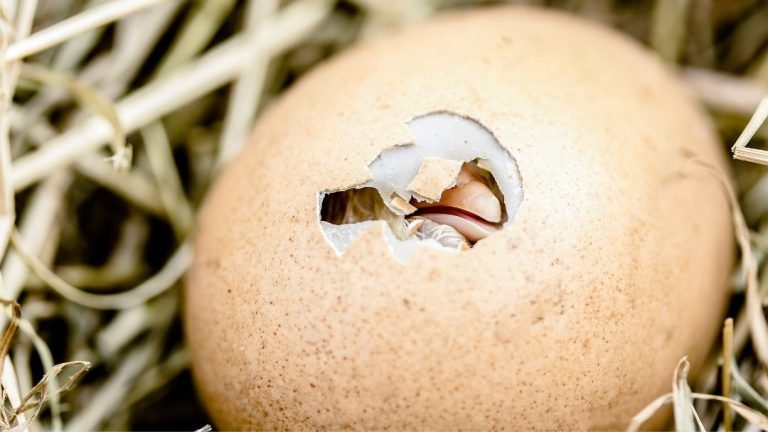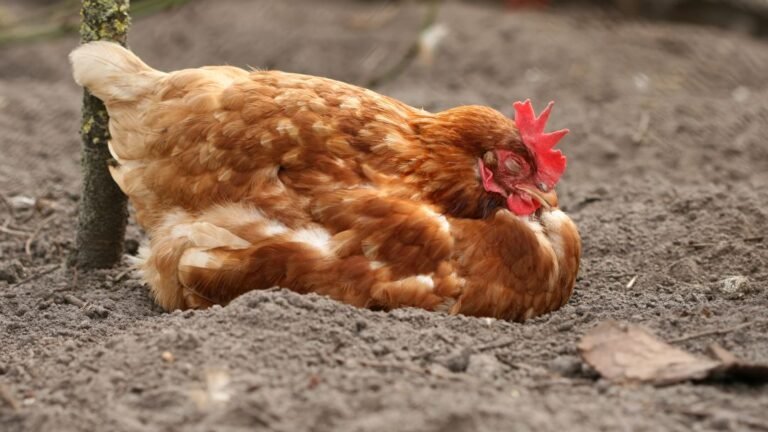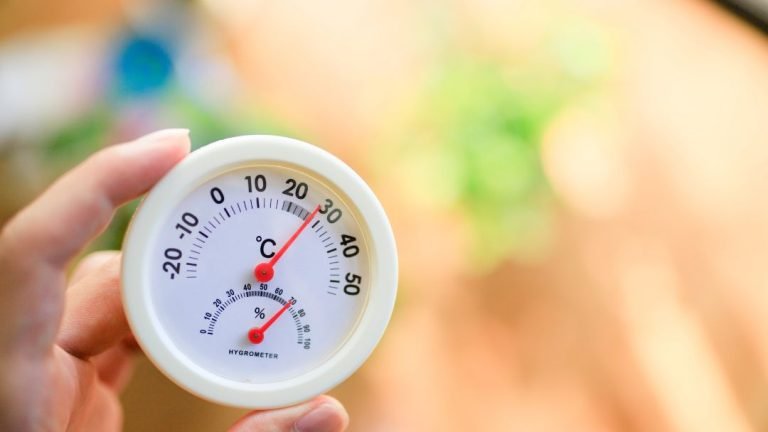Dogs eating chicken poop poses 10 health risks which can be prevented. Here is why it’s important to understand the dangers and how to keep your dog safe.
Dogs have a curious nature that often leads them to explore and consume things they shouldn’t. One common problematic behavior is dogs eating chicken poop. While it may seem harmless or even amusing, this habit can expose your furry friend to various health risks.
From bacterial infections to parasitic infestations, there are several potential dangers associated with this behavior. Therefore, it is crucial for dog owners to be aware of these risks and take preventive measures to keep their pets healthy and free from any adverse effects. We will explore the 10 health risks that dogs face when consuming chicken poop, and discuss effective ways to prevent this behavior. By understanding the risks and implementing the necessary precautions, you can ensure the well-being of your beloved canine companion.
Understanding The Dangers
Understanding the DangersPotential health hazards posed by chicken poop ingestionWhen it comes to our beloved four-legged friends, it’s essential to recognize and understand the potential health risks they may face. One such risk involves dogs coming into contact with chicken poop. While it may seem harmless or even normal for dogs to indulge in this less-than-appetizing behavior, it’s important to be aware of the potential health hazards it can present.Dogs come into contact with chicken poop in various waysDogs have a knack for finding all sorts of things they shouldn’t be eating, including chicken poop. There are several ways they can come into contact with it, mainly if they live or spend time in areas where chickens roam freely. These can include backyard coops, farms, or even rural neighborhoods. Dogs may also encounter chicken poop while out on walks, as it can be found in public spaces where chickens or other birds have been.The importance of recognizing and addressing the issue promptlyRecognizing and addressing the dog’s habit of consuming chicken poop promptly is crucial for their overall health and well-being. Not only can this behavior be unpleasant, but it can also lead to several health complications if left unchecked. By taking the necessary steps to prevent such behavior and ensuring proper hygiene, owners can protect their dogs from the potential dangers associated with chicken poop ingestion.Potential health hazards posed by chicken poop ingestion One of the primary concerns when it comes to dogs consuming chicken poop is the transmission of parasites. Chicken droppings can harbor various parasites, including roundworms, tapeworms, and coccidia. These can cause severe health issues for our furry companions if ingested. Additionally, bacteria like Salmonella and Campylobacter can be present in chicken feces, posing a risk of bacterial infections for dogs.How dogs come into contact with chicken poop Dogs can easily come into contact with chicken poop in a variety of ways. One common scenario is when dogs have access to areas where chickens roam freely, such as backyards or farms. They might also encounter chicken feces while out on walks in parks or other public spaces where chickens or other birds have left their droppings. This contact can lead to dogs ingesting the poop, putting them at risk of potential health issues.The importance of recognizing and addressing the issue promptly Recognizing and addressing the habit of dogs consuming chicken poop is crucial to ensure their well-being. Although it might seem like a harmless behavior, ingesting chicken feces can lead to various health risks. To prevent these risks, it’s important for dog owners to discourage their pets from eating chicken poop and to maintain good hygiene practices. By doing so, you can help protect your furry friend from the potential dangers associated with chicken poop ingestion.10 Major Health Risks
Dogs have a natural tendency to explore and ingest things they shouldn’t, and one common habit that pet owners often find concerning is their dogs eating chicken poop. While this behavior may seem innocuous, it can pose several health risks to your furry friend. Understanding these risks is crucial in safeguarding your dog’s health and well-being. Here are 10 major health risks associated with dogs consuming chicken poop.
1. Salmonella Contamination And Its Impact On Dogs
One of the primary concerns when it comes to dogs consuming chicken feces is the potential for Salmonella contamination. Salmonella is a harmful bacteria that can lead to gastrointestinal issues in dogs, causing symptoms like diarrhea, vomiting, and abdominal pain. Apart from affecting your dog directly, your pet can actively transmit Salmonella to humans, posing a risk to the entire family.
2. The Risk Of Bacterial Infections From Chicken Feces
Beyond Salmonella, chicken feces may harbor other bacteria that can cause infections in dogs. These bacterial infections can lead to a range of health problems, including urinary tract infections, respiratory infections, and skin infections. Such infections can cause discomfort and require veterinary intervention to treat and manage.
3. Parasitic Infestations That Can Occur In Dogs
Chicken poop can be infested with various parasites, such as roundworms, tapeworms, and hookworms. When dogs consume contaminated feces, these parasites can enter their system, leading to parasitic infestations. These infestations can result in symptoms like weight loss, diarrhea, dull coat, and overall weakness.
4. Potential Digestive Problems Caused By Chicken Poop Consumption
Ingesting chicken feces can disrupt a dog’s digestive system, leading to digestive problems. The high bacterial load in the poop can cause stomach upset, diarrhea, and even more severe gastrointestinal issues like pancreatitis. These digestive problems can seriously impact your dog’s well-being and may require immediate veterinary attention.
5. Allergic Reactions And Sensitivities That May Arise
Some dogs may develop allergies or sensitivities to the proteins present in chicken feces. This can manifest as skin allergies, respiratory issues, or digestive problems. Allergic reactions can cause significant discomfort for your furry companion and may necessitate allergy testing and dietary modifications to manage the symptoms.
6. Nutritional Imbalances And Deficiencies
While chicken is a part of many dog food formulas, consuming chicken poop does not provide the same nutritional benefits. In fact, it can contribute to nutritional imbalances and deficiencies in your dog’s diet. Dogs need a balanced and complete diet to thrive, and consuming chicken feces can disrupt this balance, leading to health issues over time.
7. The Dangers Of Toxins Present In Chicken Feces
Chicken feces can contain harmful toxins, including pesticides and herbicides. When dogs consume these toxins, they can be absorbed into their system, leading to poisoning. These toxins can have detrimental effects on vital organs, such as the liver and kidneys, and can cause symptoms like weakness, lethargy, and lack of appetite.
8. Increased Risk Of Gastrointestinal Blockages
Ingesting chicken poop can lead to gastrointestinal blockages, especially if the feces contain bones or other indigestible materials. These blockages can cause severe discomfort and may require surgery to resolve. Prompt veterinary intervention is necessary to prevent further complications and ensure the health of your dog.
9. Dental Issues From Ingesting Chicken Poop
Chewing on chicken poop can result in dental problems for dogs. The rough texture of the feces can cause tooth fractures, gum abrasions, and plaque buildup. These dental issues can lead to pain, discomfort, and an increased risk of dental diseases. Regular dental care, including professional cleanings, is vital to prevent such problems.
10. Secondary Health Problems Resulting From Primary Complications
Finally, it is important to note that consuming chicken feces can lead to primary complications, such as gastrointestinal issues or parasitic infestations. These primary complications, if left untreated or unaddressed, can potentially give rise to secondary health problems in dogs. Secondary complications can be more severe and require more extensive treatment, underscoring the importance of prevention and early intervention.
Preventing Dogs From Eating Chicken Poop
Dogs have a natural curiosity and tendency to explore their surroundings through their sense of taste. While this behavior might be harmless in some cases, it can become a cause for concern when it involves eating chicken poop. To ensure the health and well-being of your furry friend, it’s important to understand the motivations behind this behavior and take necessary steps to prevent and discourage it. In this article, we will discuss effective techniques and practices to prevent dogs from eating chicken poop and minimize potential health risks.
Understanding The Motivations Behind This Behavior
Dogs have several reasons that motivate them to eat chicken poop. It is crucial to understand these motivations in order to effectively train and prevent this behavior. Some common reasons include:
- Curiosity: Dogs are naturally curious creatures and may be intrigued by the texture, smell, or taste of chicken poop.
- Attention-seeking: Some dogs may eat chicken poop to get a reaction or attention from their owners.
- Nutritional deficiencies: In some cases, dogs may turn to chicken poop if they are lacking certain nutrients in their diet.
- Boredom: Dogs may resort to eating chicken poop if they are bored or lack mental stimulation.
Effective Training Techniques To Discourage Poop Consumption
Training is a key aspect of preventing dogs from eating chicken poop. By implementing the following techniques, you can discourage this behavior:
- Positive reinforcement: Reward your dog with treats, praise, and attention when they show disinterest towards chicken poop.
- Redirecting focus: Teach your dog alternative behaviors or commands, such as “leave it” or “look at me,” to divert their attention away from chicken feces.
- Consistency: Ensure that all members of your household are consistent and use the same training techniques to discourage eating chicken poop.
Monitoring And Controlling Access To Chicken Feces
Preventing dogs from accessing chicken feces is essential. Consider the following strategies to closely monitor and control their access:
- Fenced-off areas: Create a designated area for chickens that is inaccessible to your dog through secure fencing.
- Supervision: Always supervise your dog when they are in close proximity to chickens or their coop.
- Leash training: Keep your dog on a leash when around chickens to maintain control and prevent them from accessing the droppings.
Alternatives And Distractions To Redirect Their Attention
Providing your dog with alternative activities and distractions can redirect their attention away from chicken poop. Consider the following ideas:
- Interactive toys: Keep your dog stimulated and occupied with puzzle toys or treat-dispensing toys.
- Regular exercise: Ensure your dog receives enough physical activity to reduce boredom and excessive curiosity.
- Training sessions: Engage your dog in regular training sessions to keep their mind focused on positive behaviors.
Proper Waste Management And Containment Practices
Implementing proper waste management and containment practices is essential for minimizing the risk of dogs consuming chicken poop. Consider the following practices:
- Prompt removal: Regularly and promptly clean up chicken feces from the environment to minimize your dog’s access.
- Secure enclosures: Ensure chickens have a secure enclosure that prevents dogs from gaining access.
- Proper disposal: Dispose of chicken poop in a sealed container or composting system that is inaccessible to your dog.
Veterinary Care And Treatment Options
Identifying Symptoms And Seeking Professional Help
If you notice any unusual symptoms in your dog, it is crucial to seek professional help promptly. Identifying symptoms and taking quick action can prevent health risks associated with dogs eating chicken poop. Some common symptoms that might indicate an issue include:
- Vomiting or diarrhea
- Loss of appetite
- Abdominal pain or discomfort
- Lethargy or weakness
- Weight loss
If your dog exhibits any of these signs, it is best to consult a veterinarian for proper diagnosis and treatment.
Importance Of Regular Check-ups And Fecal Examinations
Regular check-ups and fecal examinations are essential for maintaining your dog’s overall health, especially if they have a habit of eating chicken poop. These routine visits allow the veterinarian to monitor your dog’s health and detect any potential issues early on.
Fecal examinations are particularly important as they help identify the presence of parasites or bacteria in your dog’s digestive system. Your veterinarian can collect a sample of your dog’s feces to analyze it for signs of infection or other complications.
Treating Bacterial Infections, Parasites, And Other Complications
If your dog develops bacterial infections, parasites, or other complications from ingesting chicken poop, prompt treatment is crucial. Your veterinarian may prescribe appropriate medications, such as:
- Antibiotics to treat bacterial infections
- Antiparasitic medications to eliminate parasites
- Antidiarrheal medications to address diarrhea
It is essential to follow your veterinarian’s instructions and complete the full course of medication to ensure effective treatment.
Nutritional Supplements And Dietary Adjustments For Dogs
In addition to medical treatment, nutritional supplements and dietary adjustments can support your dog’s recovery from eating chicken poop. Your veterinarian may recommend specific supplements or dietary modifications based on your dog’s individual needs.
- Probiotics: These supplements help restore the balance of healthy bacteria in your dog’s gut, promoting proper digestion and strengthening their immune system.
- Specialized diets: Your veterinarian may suggest a specialized diet to address any nutritional deficiencies or gastrointestinal issues caused by eating chicken poop.
Consult with your veterinarian before making any significant changes to your dog’s diet or introducing supplements.
Preventive Measures And Vaccinations For Specific Diseases
Prevention is always better than cure when it comes to protecting your dog’s health. In addition to proper disposal of chicken waste, preventive measures and vaccinations can help minimize health risks for your canine companion.
Some key preventive measures and vaccinations include:
- Regular deworming: Administering deworming medication as recommended by your veterinarian to prevent parasite infections.
- Vaccinations: Ensuring your dog is up to date on essential vaccinations can safeguard them against diseases such as parvovirus, distemper, and leptospirosis.
- Tick and flea prevention: Using appropriate preventive treatments to ward off ticks, fleas, and the potential diseases they carry.
- Good hygiene practices: Regular grooming, cleaning your dog’s paws, and ensuring they have access to clean drinking water help maintain their overall hygiene and well-being.
Taking these preventive measures and seeking timely veterinary care can go a long way in protecting your furry friend from the potential health risks associated with dogs eating chicken poop.
Creating A Safe Environment
Ensuring a safe and clean environment for your dog is crucial to their overall health and well-being. When it comes to preventing your dog from eating chicken poop, there are several key steps you can take to minimize the health risks associated with this behavior. In this section, we will discuss the importance of a clean and hygienic backyard, separating dogs and chickens, proper disposal of chicken poop, promoting healthy eating habits, and regular hygiene practices for both dogs and humans.
Ensuring A Clean And Hygienic Backyard For Your Dog
A clean and well-maintained backyard not only enhances the overall hygiene of your dog’s living space but also reduces the chances of them coming into contact with any chicken poop. Here are some simple steps you can take to ensure a clean and hygienic backyard:
- Regularly remove any chicken droppings from the backyard using gloves and a scooper.
- Dispose of the chicken waste in a sealed bag and place it in a secure waste bin, away from your dog’s reach.
- Consider designating a specific area for your chickens, away from your dog’s play area.
- Regularly clean and disinfect any pet toys, water bowls, or other items that may have come into contact with chicken poop.
Separating Dogs And Chickens For Their Well-being
To minimize the risk of your dog eating chicken poop, it is essential to separate them from the chickens. This not only protects your dog from potential health hazards but also promotes the well-being of both animals. Here’s what you can do:
- Construct a secure and sturdy fence to separate the chicken coop area from your dog’s designated space.
- Keep your dog on a leash and supervise them when they are in the backyard to prevent any access to the chicken coop.
- Train your dog to respect boundaries and discourage them from attempting to interact with the chickens.
Properly Disposing Of Chicken Poop And Securing Waste Bins
Proper disposal of chicken poop is crucial to prevent your dog from having access to it. Here are some important steps to consider:
- Use gloves or a scooper to collect the poop.
- Place the waste in a sealed bag.
- Ensure the waste is securely tied and placed in a waste bin with a tight-fitting lid.
- Regularly empty and clean the waste bin to prevent any odors or attract your dog’s attention.
Encouraging Healthy Eating Habits And A Balanced Diet
Feeding your dog a healthy and balanced diet is essential in preventing them from seeking nutrients from other sources, such as chicken poop. Here are some tips to encourage healthy eating habits:
- Provide your dog with high-quality commercial dog food that meets their nutritional needs.
- Avoid feeding your dog table scraps or unhealthy treats that may lead to nutrient deficiencies.
- Consult with your veterinarian to determine the best diet plan for your dog’s specific needs.
Regular Hygiene Practices For Both Dogs And Humans
Maintaining good hygiene practices is crucial for the well-being of both dogs and humans. Here are some important practices to incorporate into your routine:
- Wash your hands thoroughly after handling chicken poop or any items that may have come into contact with it.
- Groom your dog regularly to keep their fur clean and free from any contaminants.
- Provide your dog with regular baths using a dog-friendly shampoo.
- Keep your dog’s living areas, such as bedding and crates, clean and properly disinfected.
Conclusion
It is crucial to be aware of the health risks that dogs face when consuming chicken poop. From bacterial infections to parasites, the dangers can be severe. By taking precautions such as proper waste management and training, pet owners can significantly reduce the chances of their dogs coming into contact with this potentially harmful substance.
Remember, a healthy and happy dog starts with a clean environment. Keep your furry friends safe by keeping the chicken poop away!



